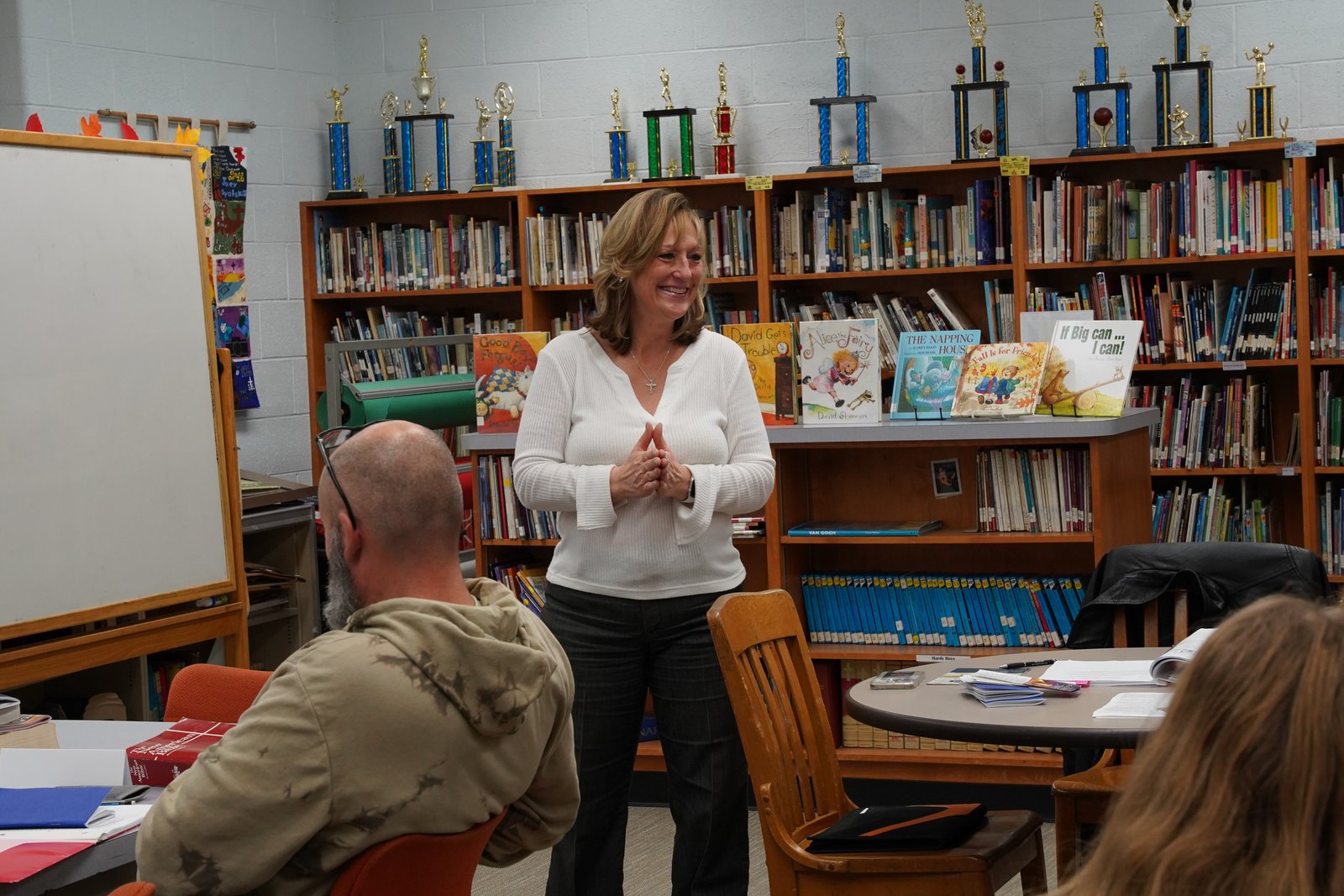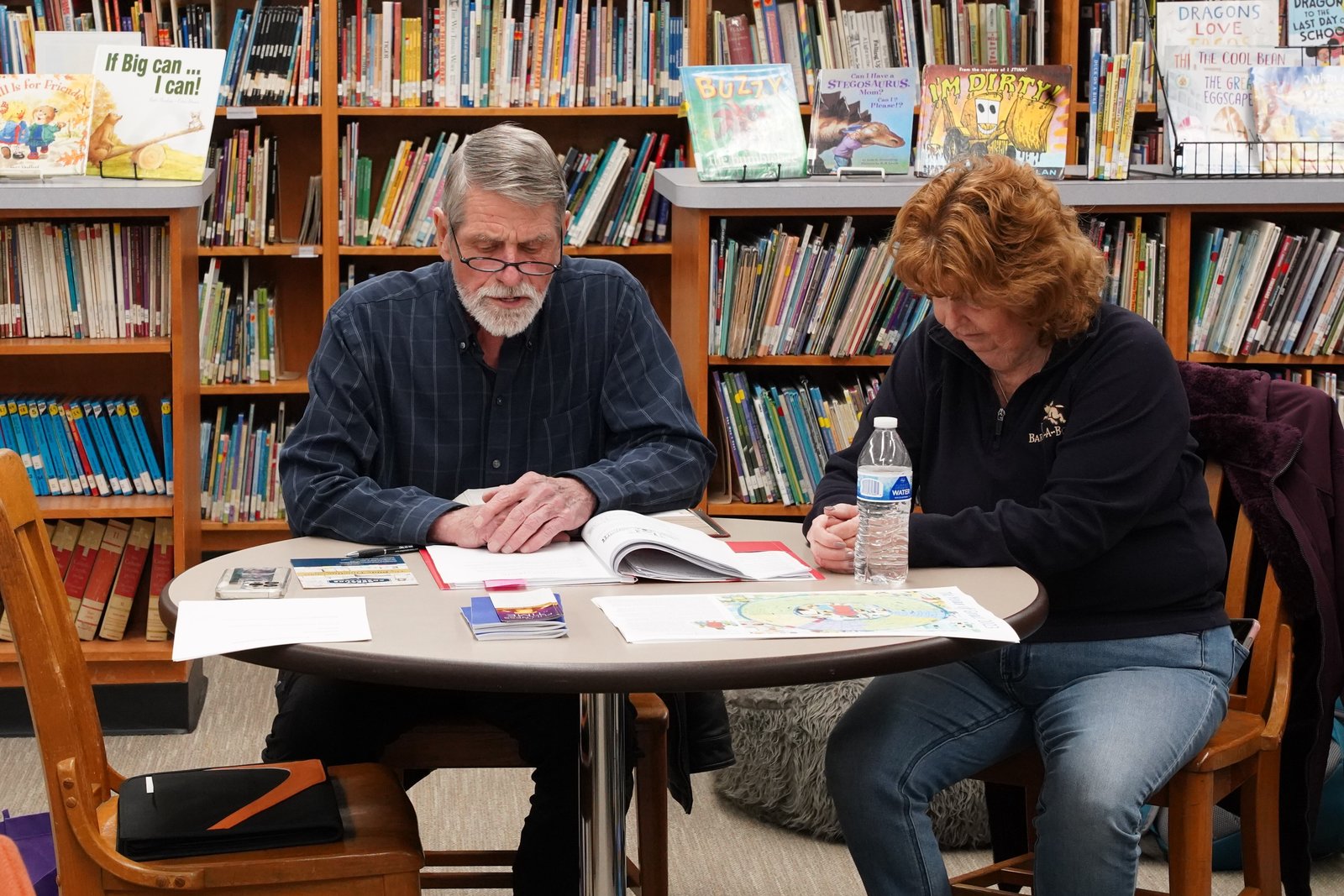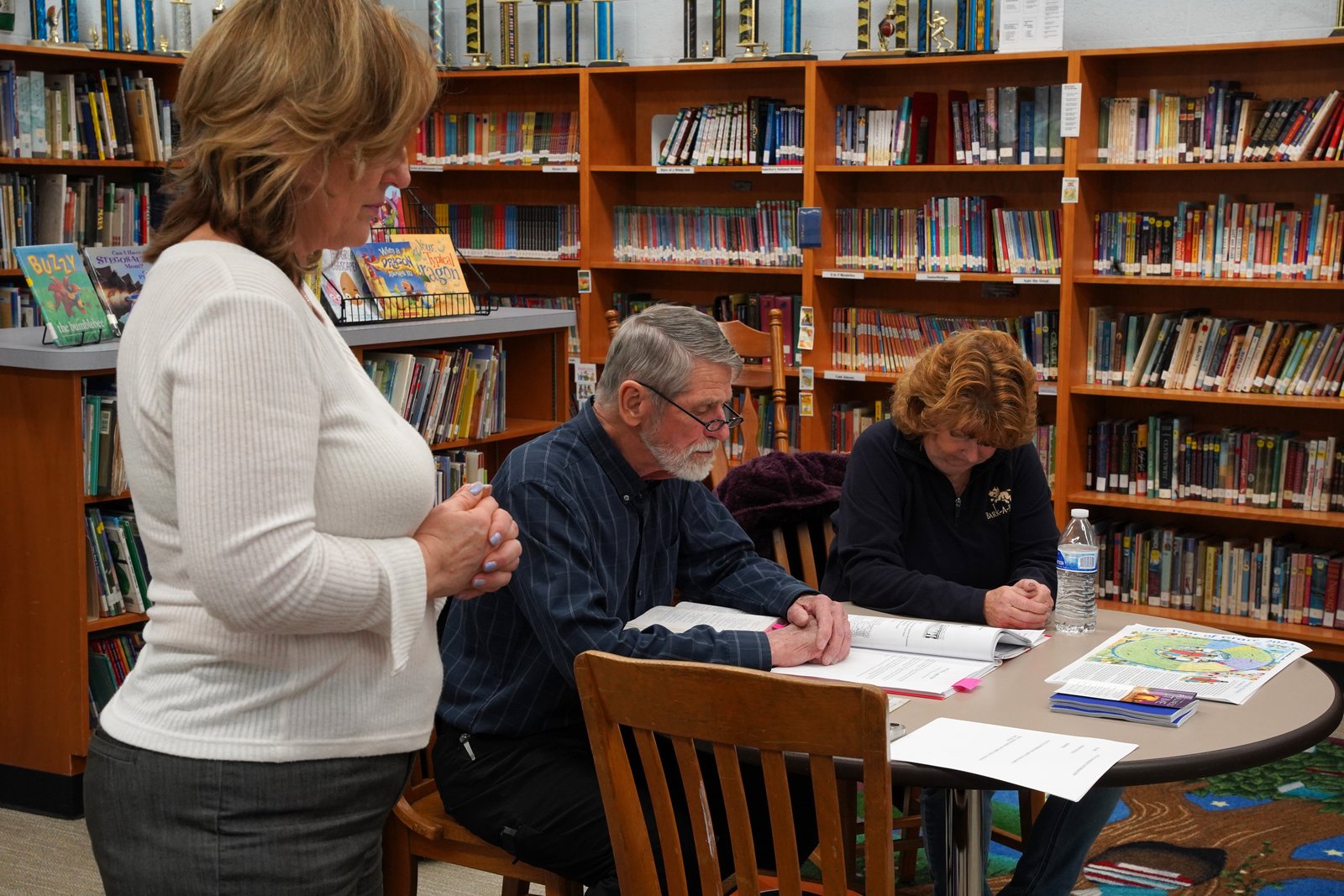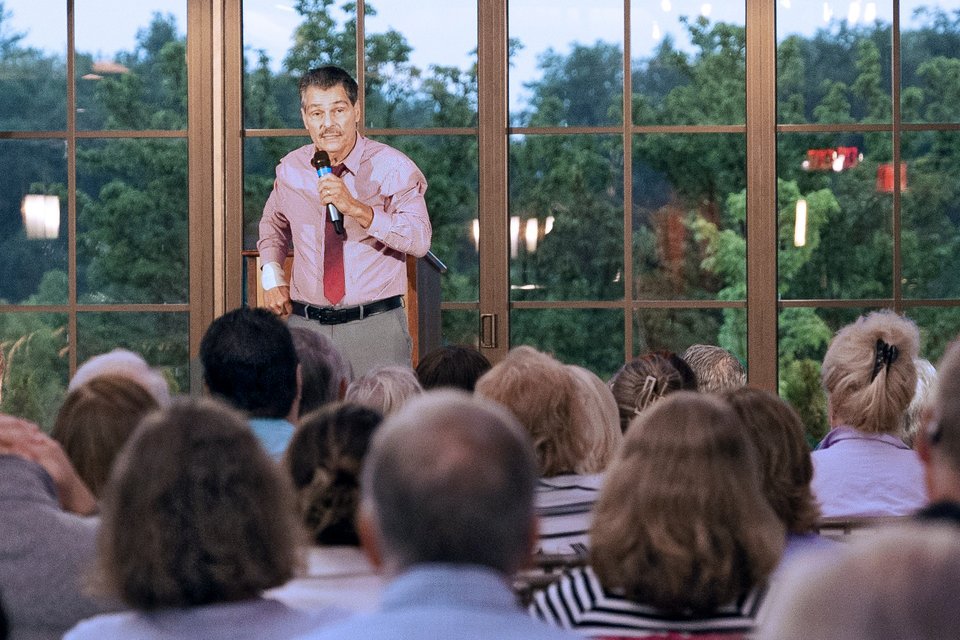Newly revised 'Order of Christian Initiation of Adults' emphasizes ongoing formation of catechumens and candidates, call to faith
IRA TOWNSHIP — Interested in becoming Catholic? Ready to complete your sacraments? Just want to learn more about what the Church teaches?
For decades, the answer was the same: Join RCIA.
The Rite of Christian Initiation of Adults, the process by which the Church brings in new converts and educates catechumens and candidates, has been a staple in Catholic life and lingo for years. But in November 2021, the U.S. Conference of Catholic Bishops changed the name of one of the best-known acronyms in the Church, reorienting the Rite of Christian Initiation of Adults (RCIA) into the new Order of Christian Initiation of Adults (OCIA).
So, is the new answer simply, "join OCIA"?
Yes, but there's more to it than that.
The change from "rite" to "order" is in part because of a retranslation of the Latin name into English, said Sr. Esther Mary Nickel, RSM, director of sacred worship in the Archdiocese of Detroit’s Department of Evangelization and Missionary Discipleship.
“(The bishops) retranslated the Order of Initiation of Adult Catechumens (Ordo Initiationis Christianae Adultorum) from Latin,” Sr. Nickel told Detroit Catholic. “When I studied in Rome, we had OCIA, because it was all in Latin. All we have done is taken the ‘O,’ which is ‘Ordo,’ and made it back to 'Order,' instead of the ‘R’ for 'Rite.' I don’t want to say it was a mistranslation, but the new translation is more comprehensive.”
It might seem like semantics, but changing the process of entering the Church from a "rite" to an "order" has practical implications, Sr. Nickel said. For one thing, rites are still part of the order — for instance, the Rite of Election — but the new structure is meant to invite candidates and catechumens into a continuous process of spiritual formation as opposed to fixed checkpoints on the path to baptism, first Communion and confirmation.

Ideally, those interested in joining OCIA wouldn't have to wait until the fall to do so, Sr. Nickel said.
“We want to propose and help people institute in Families of Parishes an ongoing catechesis and formation so people can come into the Church more frequently and not necessarily wait to begin the process of faith formation as disciples,” Sr. Nickel said. “That will be the big difference of a yearlong catechesis and accompaniment.”
The catechumenate is meant to be an ongoing formation process in which the initiated are invited to become involved in the parish, attend Mass and OCIA classes and work with catechists in delving into topics such as creation, salvation, the sacraments, the Church and the four "last things" (death, judgment, heaven and hell).
Still part of the OCIA process are rites such as the Rite of Entrance to the Catechumenate and the Rite of Sending, which both occur at the parish level, and the Rite of Election, which occurs at the cathedral with the bishop, said Amy Wyss, associate director for the Office of Sacred Worship in the Archdiocese of Detroit's Department of Evangelization and Missionary Discipleship.
"Following that is a series of rites called the Scrutinies, and after that are the Rites of Initiation,” Wyss explained.
These rites aren't new to the Church, but by making the entire process an "order," the candidate or catechumen understands the rites received in church or at the parish are just one part of the ongoing journey of discipleship that will culminate with baptism and confirmation — usually during the Easter Vigil — but will continue throughout their lives.
Catechumens and candidates won’t progress to the next rite in the OCIA process until they are ready, Wyss said.
"It's about a relationship with Jesus Christ," Wyss said, "It's about coming to knowledge of Jesus Christ and then bringing my life into conformity with his teachings. Yes, we have these beautiful experiences in the liturgy that are integrally part of this. But what is happening is the process of coming into relationship with Our Lord.”

A major benefit — although not necessarily a new phenomenon in parishes in the Archdiocese of Detroit — is that people can enter the OCIA process at any time in the calendar year and can receive the sacraments of initiation at any time, not just during Easter.
"For those coming into the catechumenate, it's not a straight line where everyone is doing the same thing or on the same path," said Tina Kovalcik, director of religious education at Immaculate Conception Parish in Ira Township. “If they are not ready to go through to the next step, we don’t push them. It is up to the catechumens and the pastor, and if they are not at the level of faith yet, we don’t go through with the next rite. Likewise, others really catch onto it and are ready almost immediately.”
When a person calls Immaculate Conception and expresses an interest in becoming Catholic, Kovalcik said, it's important that person is immediately welcomed into the faith formation process, as opposed to having them wait until October when religious education begins.
“If someone calls and says, ‘Hey, I want to be Catholic,’ we figure out who they are, why they want to join the Church, and then we set up an inquiry to figure out their spiritual background — what they know about God and the Church,” Kovalcik said. “It is not all bookwork or academic. It’s accompanying. It’s not like marrying someone after you meet them at Tim Horton’s for the first time. Faith formation is an ongoing process.”
The OCIA process encourages candidates and catechumens to take charge of their faith education, ask questions of catechists and explore the answers.

Most catechumens (those who have yet to be baptized) and candidates (those yet to be confirmed in full communion with the Catholic Church) will still be received into the Church during the Easter Vigil, but OCIA encourages them to get involved in the parish community even before they receive their sacraments, sowing seeds of discipleship that will grow well beyond confirmation, said Matthew Hunt, director of religious education at St. Thecla Parish in Clinton Township.
In some cases, a person might be spiritually ready to join the Church before Easter, and that's an option, Hunt said.
“Instead of just waiting, if a person has the conviction in their heart, if they are ready, they can join the Church quicker than waiting for the Easter Vigil,” Hunt said. “For a lot of people, the waiting sometimes is the downfall. You have to wait and go through the process, and some people need that. But at any point a priest can get a special dispensation to do confirmation.”
Hunt meets weekly with OCIA students to discuss different tenets of the faith such as divine revelation, the identity of Jesus, the need for the Church, salvation, and the sacraments, and the Last Things. At St. Thecla, students will undergo the Rite of Welcome this weekend, but the important thing is that students are learning and growing in faith, Hunt said.
“It’s not a one-time deal or a one-time process. It is a continual journey in faith. It is a relationship you take up daily with God. It is a commitment to Christ. One of our students is in OCIA as part of marriage prep, but I told him it's still an individual commitment. From your commitment, a growing faith will make your marriage better,” Hunt said.

At its core, the OCIA process is a process of accompaniment, of disciples of Jesus Christ learning more about discipleship as they walk together, just as it was done on the Road to Emmaus, Wyss said.
“In the Archdiocese of Detroit, we are looking at (Archbishop Allen H. Vigneron's pastoral letter) Unleash the Gospel as part of our pre-catechumenate,” Wyss said. “This is consistent with our call to evangelize. We are bringing people to a point of initial conversion. That's the really important question we are asking: How do we allow people to hear the kerygma and be equipped to respond freely to the kerygma?"
Learn more about OCIA
A conference for parish staff and volunteers to learn more about the Order of Christian Initiation of Adults (OCIA) will take place Thursday, Jan. 26, 2023, from 8:30 a.m.-3:30 p.m. at Sacred Heart Major Seminary.
"The Pastoral Nature of Doctrine in the OCIA" conference is sponsored by the Archdiocese of Detroit's Office of Sacred Worship. For information, contact Amy Wyss at [email protected]. Further details will be published on the Archdiocese of Detroit's website.
Copy Permalink
Catechesis












